22 October, 2020 By: Vanessa Pogorelic
Record increases in boat sales across WA this year are set to give marine authorities a busy summer on the water.
Vince De Luca and his brother David have been selling boats from their Dinghy World boat yard in South Perth for around 16 years. They’ve weathered many storms in the local boating market, navigating the downturns and riding the highs during the boom years, but they’ve never experienced a year quite like 2020.
“Normally we have a really flat winter for sales but that just hasn’t occurred at all,” De Luca says. “It’s like we’ve had our summer during winter. We’re getting a bit nervous about what summer’s going to actually be like!”
Since Western Australia’s COVID-19 restrictions first came into effect during March, the phones at the brothers’ boatyard have been running off the hook, with many locals suddenly keen to get out on the water.
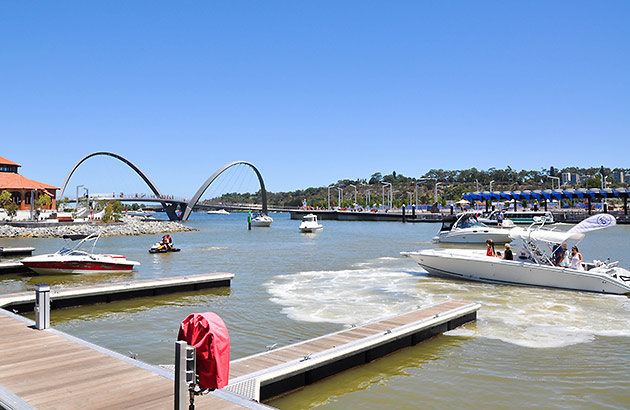
“When it all first happened, we thought, well we’d better close the yard, so we sent everyone home.
“My brother and I were still manning the phones, but we noticed the calls never stopped. People were ringing up to get their boat serviced. They were saying, ‘look I haven’t started my motor up for a while, but I want to get it going’.”
RELATED:
Cycling surges during COVID restrictions
De Luca says they also saw a big increase in the number of people buying their first boat, often citing a lack of other holiday options as the reason for the new interest in boating.
“They were coming in and saying, ‘well with the money we were going to spend on a trip to Bali, we’ve decided to get a boat instead’.
“Often when people go camping, they want a little boat to take away, too. You always get a bit of that but there’s much more of it now.”
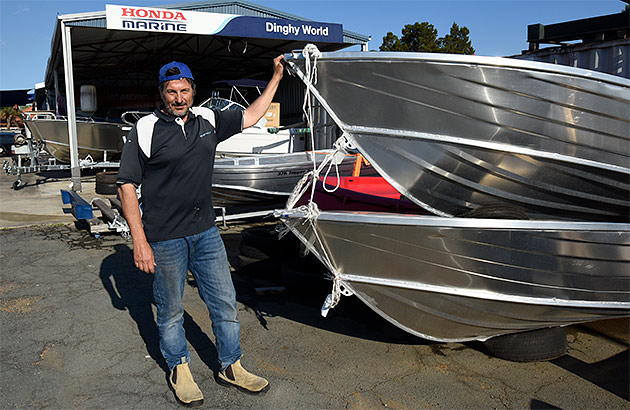
Boat sales skyrocket in WA
In May, as some of WA’s COVID-19 restrictions were eased and most intrastate travel restrictions were lifted, Western Australians, still locked inside the State’s hard border, took to the great outdoors in huge numbers. Sales of bicycles and other recreational equipment, including caravans and camping gear, boomed.
With the autumn months normally a time when local boat sales start to decline, May this year saw the complete reverse. In May 2020, registrations of new boats under 5m in length were up 39 per cent on May 2019 figures, according to the Boating Industry Association (BIA) of WA. By June, new boat registrations had increased by a massive 98 per cent compared with June 2019.
Enjoying this article?
Sign up to our monthly eNews
Figures from the BIA show that Open Boats, which includes dinghies, was the most popular category for boats under 5m.
Also becoming increasingly popular are Personal Watercraft such as jet skis and wave runners. The BIA says this category is currently the fastest-growing sector of powered vessels in Australia.
Lots of boaties, not enough boats
But it hasn’t all been smooth sailing for local boat dealers. While there are plenty of buyers waiting to purchase, factory shutdowns overseas have meant stock is in short supply.
This has included not only boats but also trailers, motors and parts, making it even more difficult for local dealers to keep up with demand.
“All boat dealers are going through it right now,” says Dinghy World’s Vince De Luca.
“We’re spending a lot of time talking to customers about boats, but we won’t have much to sell them soon. That’s the only downside.”
Even with a shipment of new dinghies on the way, De Luca says there simply won’t be enough to cover everyone on the waiting list.
Other outdoor leisure industries across the state have been experiencing similar supply issues.
Dealing with a new kind of traffic congestion
Despite the stock supply issues currently impacting the boating industry, the increase in registrations for both new and existing boats since May this year still signals a busy summer on the State’s waterways.
With many novice boaties heading out for the first time and others coming back to boating after a long break, the summer holiday period is expected to be challenging for those who patrol recreational craft on WA waters.
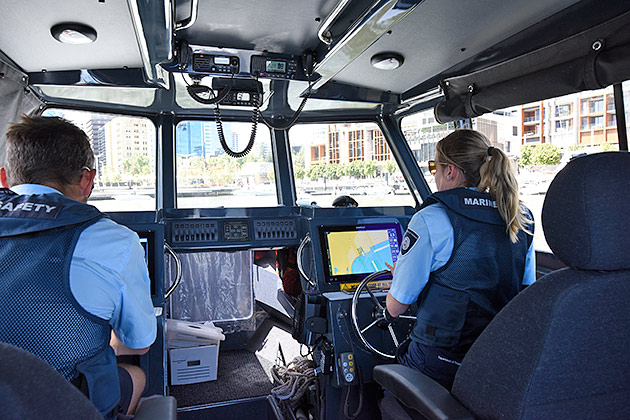
Mark Briant, A/Director of Waterways Safety at the Department of Transport says, while most WA skippers have a good understanding of boating regulations, there are some aspects of managing a boat that some find challenging.
“Vessels capsizing and colliding are the most common incidents in WA that pose a danger to those on board,” Briant says.
“The experience is varied for all new skippers, but the advice is always do your homework before you head out and don’t be afraid to ask if you don’t know, especially when boating in an unfamiliar area.”
The Department has 19 patrol vessels in the metropolitan area and at regional centres from Kununurra to Esperance. The officers on board provide information to boaties, check skipper's tickets and also issue infringements to those breaking the rules. Some of the most common offences include speeding, deficient safety equipment, not holding a Recreational Skipper’s Ticket, expired or no boat registration, and personal watercraft ‘freestyling’ in a prohibited area.
The Marine Safety team is aided by a network of CCTV cameras stationed at popular boating locations in metropolitan waters. Mobile units are also in use and can be moved to boating hot spots around the state. The cameras capture a range of offences from speeding and skiing without an observer, to personal watercraft riders not wearing lifejackets, or water skiing before the permitted time.
Boat registration captured by the footage is then used to send an infringement notice to the owner. When first implemented, the Compliance Monitoring CCTV system was thought to be the first of its kind in Australia.
Having already seen a higher than normal number of recreational craft on the water over the winter months, the CCTV network will provide invaluable ‘extra sets of eyes’ on the water for the Marine Safety teams this summer.
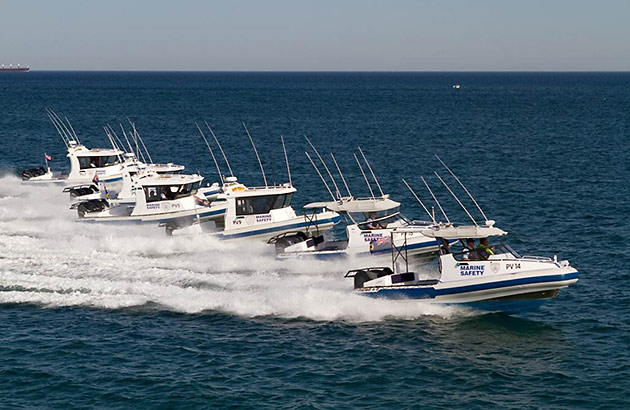
Making sure everyone gets home safely
If you’re going to operate any recreational boat with a motor that exceeds 6hp (4.5kW) you’ll need to pass the test to get a Recreational Skipper’s Ticket.
The Skipper’s Ticket became a requirement in 2006 and was designed to provide the core skills needed to safely operate a recreational craft. Because it doesn’t require renewal or retesting, boat owners should ensure their knowledge is sound before heading out and consider a refresher if going back out onto the water after a long break.
Especially important is making sure on-board safety equipment is well maintained, including lifejackets.
Mark Briant says wearing a lifejacket in an emergency gives those involved extra time to raise the alarm and assists survival in the water.
“In the five years from July 2015 there were 34 recreational boating deaths in WA. Incident investigations revealed that 25 of those deaths, or 73 per cent, may have been avoided if the person had been wearing a lifejacket.”
In WA there are an average of six boating-related deaths each year.
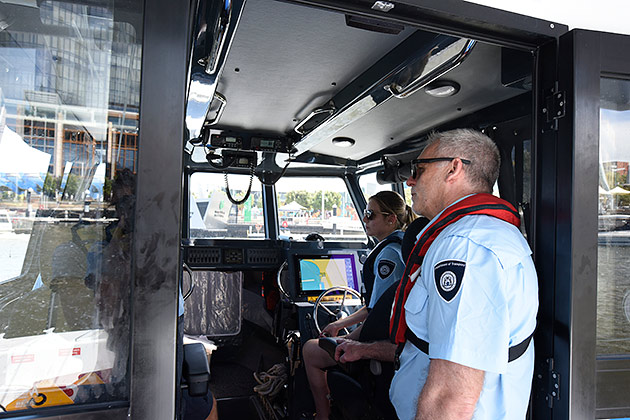
“In July we launched the campaign Make a difference – maintain and wear your lifejacket to change boating behaviour in WA and reduce the number of boating-related deaths.”
As part of the campaign, boaties can participate in special clinics to learn how to maintain a new generation inflatable lifejacket. Vouchers are also available to assist with the cost of servicing or replacing a lifejacket when needed.
In WA, a lifejacket must be carried for each person on board over the age of 12 months on every recreational vessel when operating in unprotected waters.
For those operating a personal watercraft, such as a jet ski, a life jacket must be worn at all times.
With many more watercraft expected to be in use over the summer holiday season, operating safely around others out on the water, including unpowered craft such as kayaks and stand up paddle boards, will be more important than ever.
Remember, if you’re passing within 15m of another vessel, even an unpowered craft such as a kayak, regulations require you to drop your speed to 8 knots. And where there is a person in the water, once you’re within 50m, drop to 8 knots.
For those who need to brush up on the rules of the waterways or who want to familiarise themselves with a location they’re visiting for the first time, the Department of Transport has a series of guides for popular boating locations which provide an easy reference for skippers.
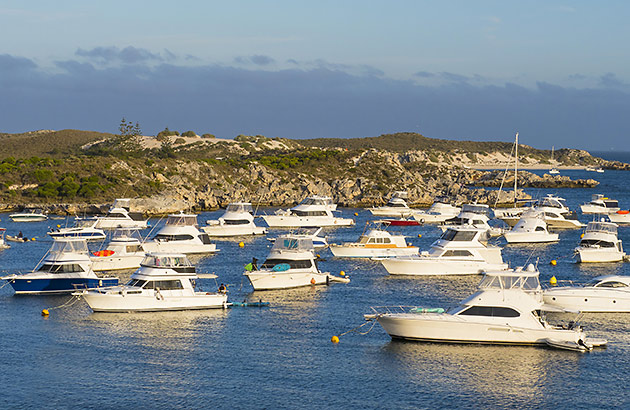
What to do in a boating emergency
For emergency situations requiring immediate assistance, call 000 or contact WA Water Police 9442 8600. When at sea, you must have your radio turned on and tuned to the distress frequency. For 27 mHz, this frequency is 27.88 and for VHF Ch16. For more information about dealing with boating emergencies and incidents, visit the Department of Transport.
Make sure your boat's covered before you hit the water
Take your boat out this summer knowing it’s covered with RAC Boat Insurance. Plus it'll be covered on land or on the water.
This product is issued by RAC Insurance Pty Ltd. Benefits are subject to policy conditions and PED Guide. Before you make a decision, please check the PDS and TMD to see if the policy is right for you. Limits and exclusions apply.
